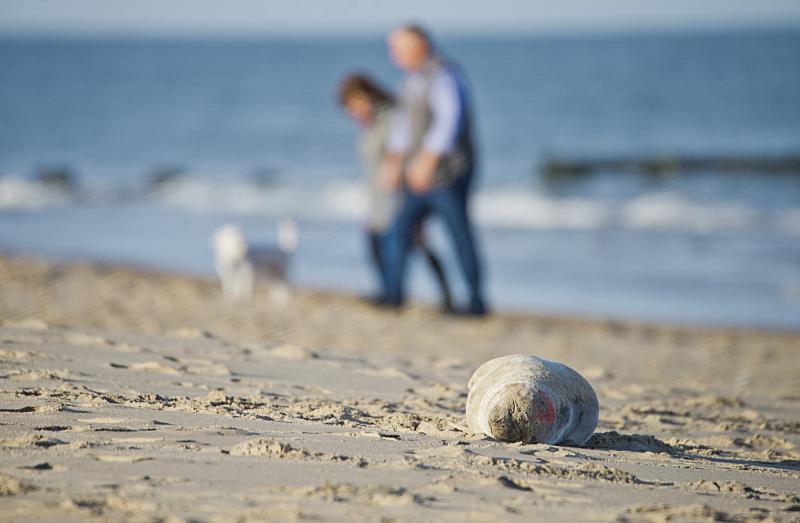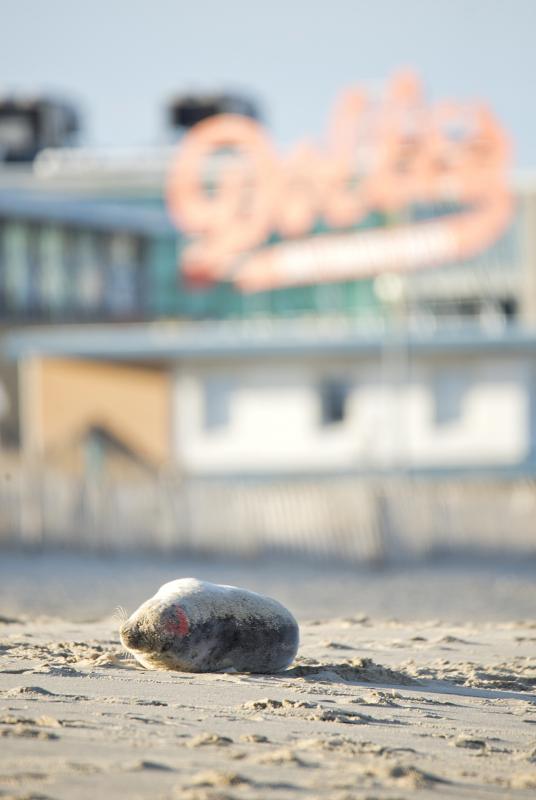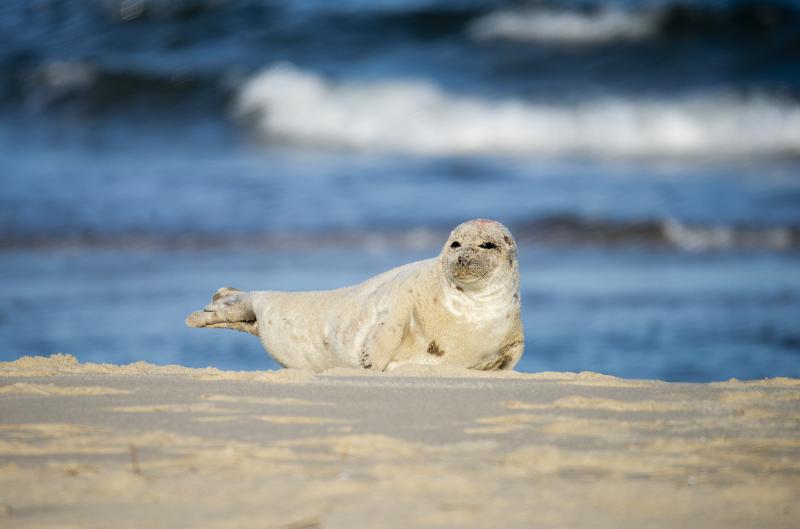The MERR Institute responded to a yearling harp seal that came up onto the beach on Valentine’s Day in front of Funland in Rehoboth Beach. The seal was monitored for 24 hours before the decision was made to rescue her. The seal was moderately underweight, and exhibited some unusual behaviors, including rolling around in the sand as if scratching its back. She was also observed eating sand, which can cause GI distress and even death. The seal was rescued by the MERR response team, which transported her to the National Aquarium in Baltimore for further rehabilitation. Cupid was diagnosed with dehydration and a severe case of lice, for which she will be treated.
Named Cupid in honor of her Valentine’s Day visit to Delaware beaches, Cupid had the #7 applied to the top of her head in orange paint. This numbering system is used by many stranding response organizations to identify animals for a variety of reasons. After a little research, MERR was able to determine that the number had been applied by the Marine Mammal Stranding Center in Brigantine, NJ. They had collected her in Northern New Jersey and relocated her to a better spot. She was described as being robust and very feisty. Although she was a little thinner by the time she got to Delaware, she was still very feisty and gave her rescuers a bit of a challenge. Cupid delighted many beachgoers who had the opportunity to observe her in her natural habitat, under the guidance of MERR’s dedicated Volunteers. MERR will respond to every seal that is reported, and will then send trained responders to the scene to help assess and monitor the seal, while at the same time helping to educate the public and alert them to the mandatory distances that must be kept from these protected species.
There are 4 different species of seals that come to Delaware every winter. Although they don’t engage in a true migration, they have been traveling here and further south for many decades. Seals need to get out of the water to rest, so it is not unusual to see them up on beaches, docks, jetties and other structures as they try to take a nap. They may be perfectly healthy, but trained experts from MERR will assess them to make this determination, and determine the best course of action for the seal.
Beachgoers will often encounter some of MERR’s volunteers at the scene. These dedicated people generously give their time and brave the elements to help keep our seal visitors safe, while allowing them to get the rest they need so that they can return to the water when they are ready. MERR volunteers are always happy to provide information to people who would like to know more about these delightful animals that are part of the coastal ecosystem. You may also visit MERR’s website at www.merrinstitute.org for more information.
MERR asks that everyone maintain a minimum distance of 150’ from the seal at all times, even when taking a photograph. Please keep dogs on a leash for their safety as well as that of the seal. Seals can harbor diseases that are transmissible to humans and pets. If you encounter a seal, please do not touch it, attempt to feed it, or urge it back into the water. They are on the beach for a reason and if healthy, will return to the water when they are rested. Seals hail from much colder climates than Delaware, so they are not suffering from cold or the other elements. Please do call MERR to report seals, and other any marine mammal or sea turtle stranding. Please contact 302-228-5029.























































